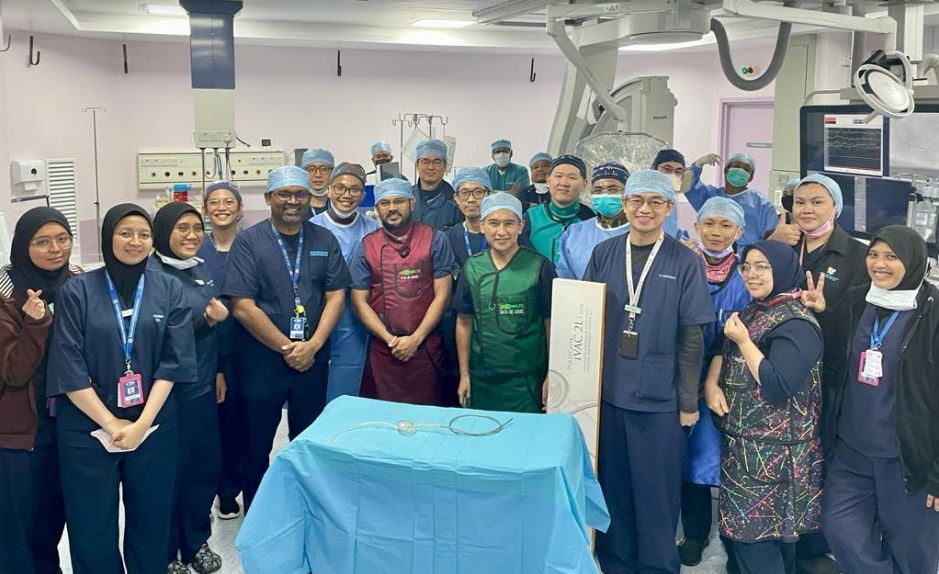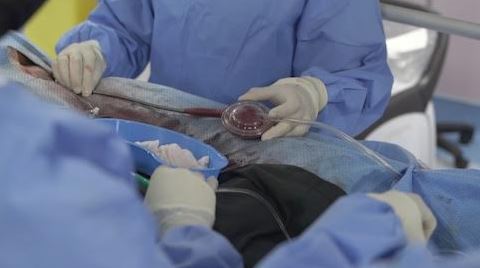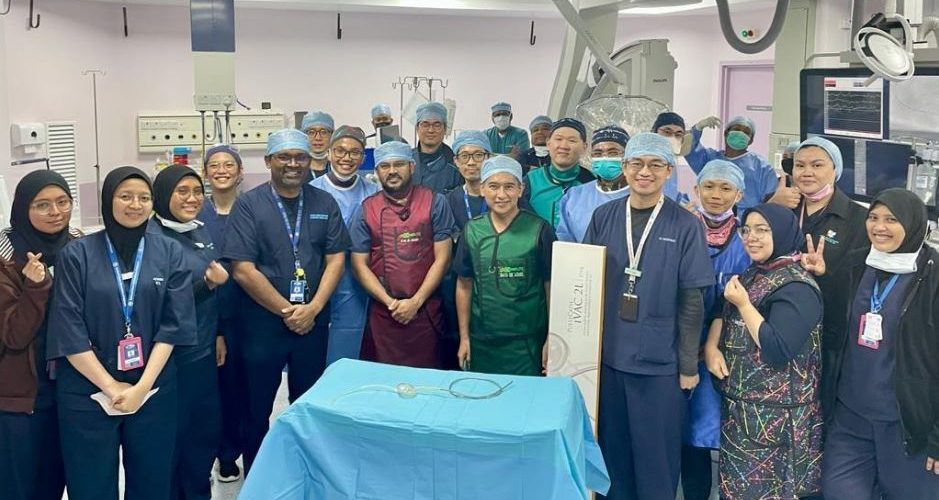
Institut Jantung Negara (IJN) has successfully performed a novel procedure for high-risk heart failure patients, as part of its mission to improve health outcomes for more people in need.
The procedure involves the use of a temporary mechanical circulatory device that supports blood flow for heart failure patients undergoing percutaneous coronary intervention (PCI or angioplasty with stents). Designed to be used in high-risk and complex cardiac procedures, the device assists blood flow through a pump to maintain optimal arterial pressure within the heart and the whole body.
IJN carried out its first procedure with the PulseCath iVAC2L last September, making it the first hospital in Malaysia to successfully do so. The procedure was performed by a team of cardiologists led by Dato’ Dr. Azmee Mohd Ghazi Clinical Director for Heart Failure and Heart Transplant.
“The patient was discharged a few days after the procedure without any complications and is doing well at home. We are excited at the prospect of using this support device to benefit more people who are unable to undergo conventional PCI treatment due to high risk” said Dr. Azmee.

There are several other types of temporary mechanical support devices that will be introduced in IJN very soon.
PCI is a non-surgical procedure used to treat coronary heart disease, one of the most common forms of heart disease. Coronary heart disease occurs when coronary blood vessels become narrowed by the build-up of fatty deposits or plaque, which in turn reduces the amount of blood supplying the heart muscle. In severe cases, the condition can lead to heart attack and heart failure.
In PCI, doctors use a small catheter to place a balloon and stent to help open up the narrowed or blocked coronary blood vessels. This will allow more oxygenated blood to supply the heart muscle and continue functioning normally as a pump. However, some patients are considered too high risk for PCI, especially patients with multi-vessel coronary heart disease and those with multiple comorbidities such as severe kidney disease and liver disease.

“Some patients with coronary heart disease have severe heart failure, where their heart muscles are too weak to withstand a conventional PCI because the heart is unable to pump blood efficiently enough,” explains Datuk Dr Shaiful Azmi, Head of Cardiology Department.
“In these cases, mechanical circulatory devices can help avoid complications by providing temporary hemodynamic support to the heart.” he added.
Meanwhile, IJN chief executive officer Datuk Dr Aizai Azan Abdul Rahim said the milestone was part and parcel of the centre’s drive to seek out the latest in proven therapy.
“The medical field is one of continuous refinement — each improvement can make a world of difference to our patients, and give them the opportunity to have a better quality of life.”said Datuk Dr Aizai.











